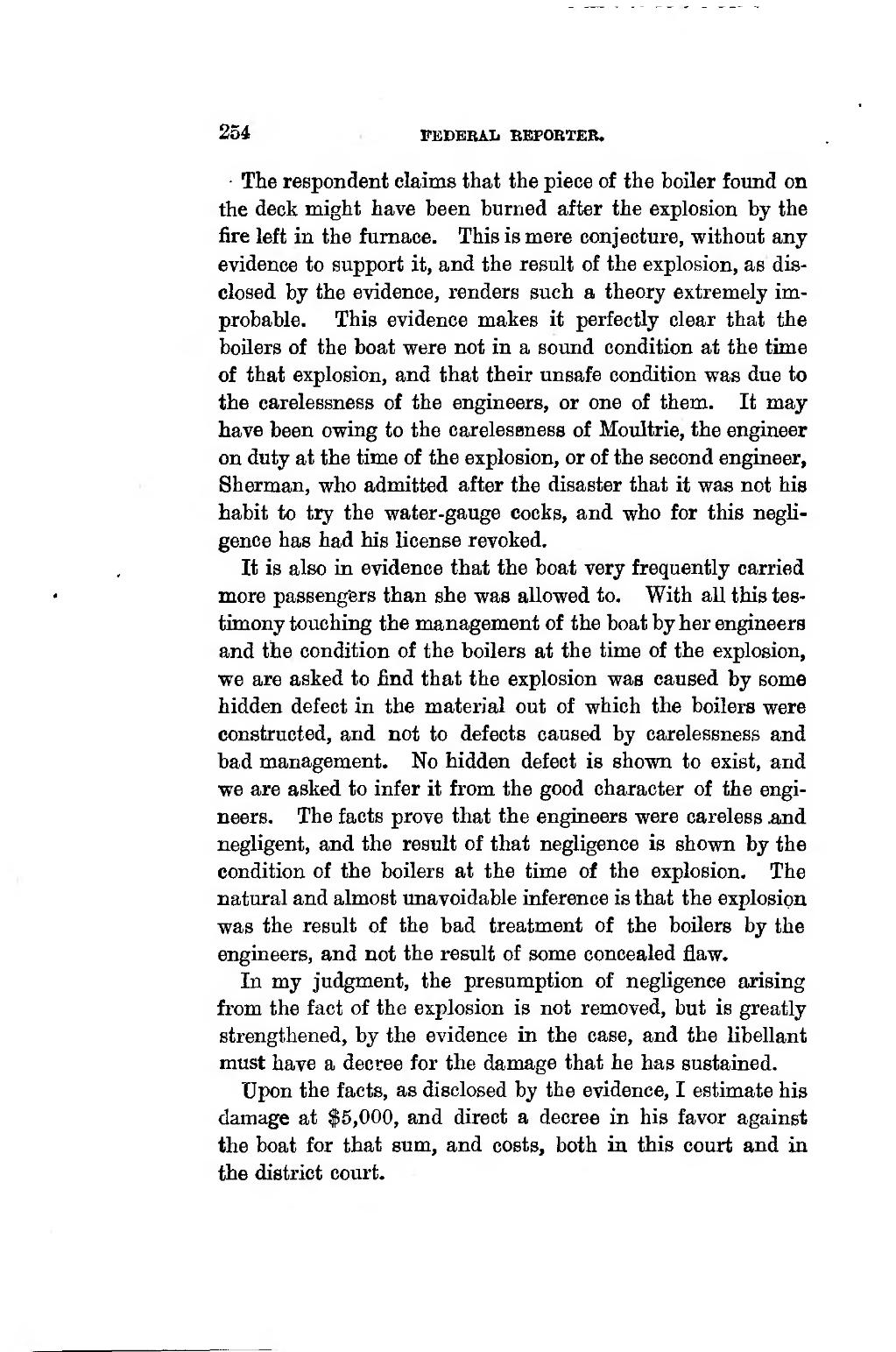254 FEDBBAIi EBPORTEB. �The respondent claims that the piece of the boiler found on the deck might have been burned after the explosion by the fire left in the furnace. This is mere conjecture, without any evidence to support it, and the resuit of the explosion, as dis- closed by the evidence, renders such a theory extremely im- probable. This evidence makes it perfectly clear that the boilers of the boat were not in a sound condition at the time of that explosion, and that their unsafe condition v^as due to the carelessness of the engineers, or one of them. It may have been owing to the carelessness of Moultrie, the engineer on duty at the time of the explosion, or of the second engineer, Sherman, who admitted after the disaster that it was not his habit to try the water-gauge cocks, and who for this negli- gence has had his license revoked. �It is also in evidence that the boat very frequently carried more passeng'ers than she was allowed to. With ail this tes- timony touching the management of the boat by her engineers and the condition of the boilers at the time of the explosion, we are asked to iind that the explosion was caused by some hidden defect in the material out of which the boilers were constructed, and not to defects caused by carelessness and bad management. No hidden defect is shown to exist, and we are asked to infer it from the good character of the engi- neers. The facts prove that the engineers were oareless .and negligent, and the resuit of that negligence is shown by the condition of the boilers at the time of the explosion. The natural and almost unavoidable inference is that the explosion was the resuit of the bad treatment of the boilers by the engineers, and not the resuit of some concealed flaw. �In my judgment, the presumption of negligence arising from the fact of the explosion is not removed, but is greatly strengthened, by the evidence in the case, and the libellant must have a decree for the damage that he has sustained. �tJpon the facts, as disclosed by the evidence, I estimate his damage at $5,000, and direct a decree in his favor against the boat for that sum, and costs, both in this court and in the district court. ����
